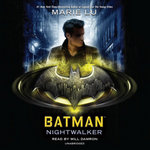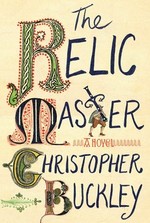 |
Happy: Why More or Less Everything is Absolutely Fineby Derren Brown Unabridged Audiobook, 14 hrs., 32 mins Read: June 26-29, 2020 |

Several weeks ago, I put a hold on this book from my Library. I was looking for some good Non-Fiction and this seemed along the lines of something a doctor was recommending. Also, the subtitle made me think I’d like it. I knew nothing about Brown or his expertise, but it seemed like a decent premise.
I guess I should start off with the Book Blurb (‘cuz you don’t want me summarizing this one)
Everyone says they want to be happy. But that’s much more easily said than done. What does being happy actually mean? And how do you even know when you feel it?
Across the millennia, philosophers have thought long and hard about happiness. They have defined it in many different ways and come up with myriad strategies for living the good life. Drawing on this vast body of work, in Happy Derren Brown explores changing concepts of happiness – from the surprisingly modern wisdom of the Stoics and Epicureans in classical times right up until today, when the self-help industry has attempted to claim happiness as its own. He shows how many of self-help’s suggested routes to happiness and success – such as positive thinking, self-belief and setting goals – can be disastrous to follow and, indeed, actually cause anxiety. This brilliant, candid and deeply entertaining book exposes the flaws in these ways of thinking, and in return poses challenging but stimulating questions about how we choose to live and the way we think about death.
Happy aims to reclaim happiness and to enable us to appreciate the good things in life, in all their transient glory. By taking control of the stories we tell ourselves, by remembering that ‘everything’s fine’ even when it might not feel that way, we can allow ourselves to flourish and to live more happily.
This was a snarky summary of pop psychology and pop philosophy, criticizing in others the same methods it embraces. I stuck with it for a while, trusting I could wade through the (willfully) ignorant dismissal of “Religion” (interestingly, the only example of Religion I encountered was Christianity (broadly considered)), and reductionistic history of Philosophy on to something useful. Actually, I’d have been okay with a quick dismissal of Christianity—but coming back to it time and time again, just to dismiss it as unworthy of engagement, got on my nerves. Also, the spleen-venting over The Secret went on far too long, and come on, it’s low hanging fruit. But in the end*, I just found myself resenting the endeavor and decided his neo-Stoicism wasn’t worth it.
* And by end, I mean, roughly the 25% mark.

![]()






